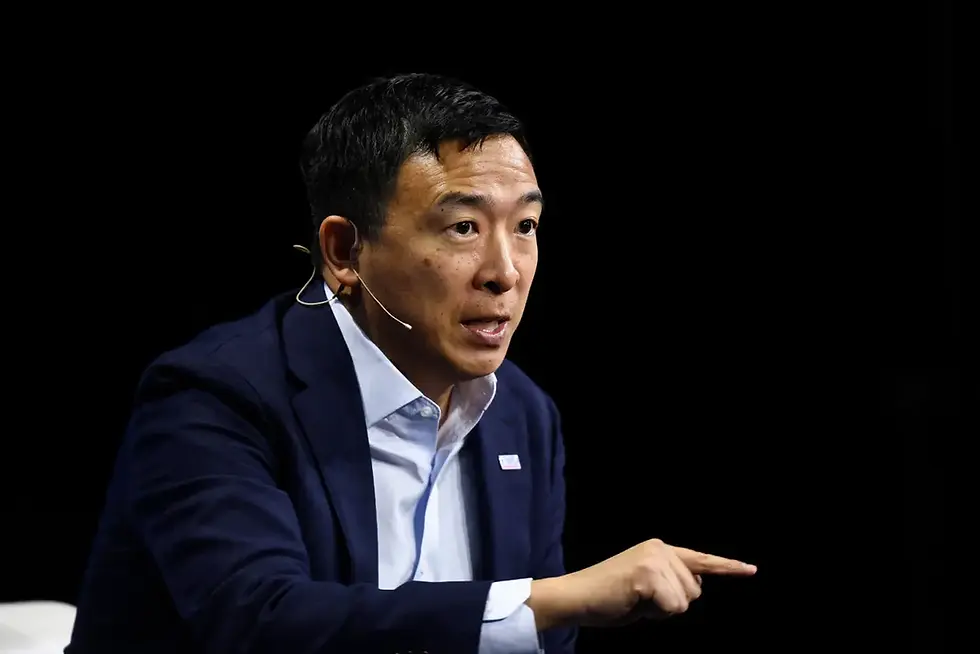Elon Musk and the Fine Line Between Genius and Controversial Leadership
- Dr. Shahid Masood

- Nov 29, 2024
- 6 min read

Elon Musk stands as one of the most influential and controversial entrepreneurs of the 21st century. His journey from a curious inventor to the founder of some of the most groundbreaking companies in modern history has captivated the world’s attention. Musk’s ventures span a vast array of industries, from electric vehicles to space exploration and artificial intelligence, but his leadership style, management tactics, and the resulting consequences for employees and corporate culture are equally as significant. This article delves into the multifaceted persona of Elon Musk—his rise to success, the controversies surrounding his management, and the long-term impact of his leadership on the industries he has revolutionized.
Early Life and Foundations of Innovation
Elon Musk was born in Pretoria, South Africa, in 1971. From a young age, Musk displayed an insatiable curiosity, devouring books on science and technology and teaching himself computer programming. His formative years in South Africa, followed by a move to Canada and eventually the United States, provided him with a global perspective and a drive to change the world.
Musk's educational background laid the foundation for his future achievements. After attending Queen’s University in Canada, he transferred to the University of Pennsylvania, where he earned dual degrees in physics and economics. These fields would prove crucial in shaping his ventures, as Musk often blends scientific principles with economic strategies in his businesses. His early academic success demonstrated his unique ability to approach complex problems from multiple angles.
The Entrepreneurial Spark: Zip2 and PayPal
Musk’s entrepreneurial journey began in the mid-1990s with the founding of Zip2, a company that provided online business directories and maps for newspapers. The company's success culminated in its acquisition by Compaq for $307 million in 1999. This marked Musk's first major financial success and opened the door to more ambitious projects.
In 1999, Musk founded X.com, a financial services company that would later evolve into PayPal. Musk’s vision for X.com was to revolutionize the online banking system, but the company would ultimately find its true success through PayPal, a service that transformed online payments. PayPal’s success led to its acquisition by eBay in 2002 for $1.5 billion in stock, solidifying Musk’s place as a prominent tech entrepreneur. These early ventures exemplified Musk’s ability to identify gaps in existing markets and use technology to create lasting change.
Tesla: Pioneering the Electric Revolution
Tesla, one of Musk’s most significant ventures, has not only disrupted the automotive industry but has also set the standard for sustainable energy. Founded in 2003, Tesla’s mission was to accelerate the world's transition to sustainable energy, starting with electric vehicles (EVs). Under Musk’s leadership, Tesla became the global leader in electric car production, developing vehicles such as the Model S, Model X, Model 3, and Model Y, all of which pushed the boundaries of design, performance, and sustainability.
Tesla’s success is also linked to its innovation in energy solutions, such as solar energy products and energy storage systems. The company’s achievements have demonstrated that electric vehicles can not only match traditional cars in performance but exceed them in areas like speed, efficiency, and environmental impact.
SpaceX: Rewriting the Rules of Space Exploration
SpaceX, founded by Musk in 2002, is another of his landmark achievements. The company’s mission to reduce the cost of space travel and make human life multi-planetary has positioned SpaceX as a leader in aerospace technology. Perhaps one of the most revolutionary aspects of SpaceX's work has been the development of reusable rocket technology, significantly lowering the cost of launching payloads into space.
In addition to its work with NASA and commercial clients, SpaceX has ambitions for Mars colonization, with Musk envisioning a human settlement on the Red Planet within the next few decades. The company’s achievements, including the launch of the Falcon Heavy and the successful missions of the Crew Dragon, have reshaped the aerospace industry and reignited global interest in space exploration.
The Controversial Leadership Style
While Musk’s innovative ventures have revolutionized entire industries, his leadership style has been a source of contention. Musk is known for his high-intensity management tactics, which demand long hours, relentless dedication, and a near-obsessive drive for innovation. While this has propelled his companies to success, it has also led to a highly pressurized work environment, which some employees have found detrimental to their well-being.
Intensity and Employee Welfare
Musk’s approach to leadership is built around his belief that only through pushing employees to their limits can extraordinary results be achieved. However, this has resulted in burnout, high turnover rates, and criticism of the work-life balance at companies like Tesla. For instance, Tesla’s production deadlines, such as those for the Model 3, have been met with reports of employees working long hours under intense pressure.
Critics argue that Musk’s leadership style, while effective for pushing innovation, has led to a toxic corporate culture that can be harmful to employee morale. Some employees have reported feeling overworked, with little room for rest or personal time. This intensity is in stark contrast to the modern corporate emphasis on flexibility, work-life balance, and employee wellness.
The Twitter Takeover and Management Fallout
Musk’s 2022 acquisition of Twitter provided a dramatic example of his management style in action. His vision for Twitter was to transform the platform into a space for “free speech,” but his approach was marked by controversy. Musk’s erratic behavior on the platform, including the reinstatement of banned accounts and his promotion of conspiracy theories, raised concerns about his leadership abilities and the future of the social media giant.
Perhaps one of the most significant impacts of Musk’s takeover was the mass exodus of Twitter employees. Faced with the ultimatum of committing to long hours or leaving, many chose to leave the company. The high turnover and the shifting dynamics at Twitter serve as a reminder of the consequences that Musk’s leadership style can have on employee retention and corporate stability.
Expert Criticism of Musk’s Leadership
Business and HR experts have offered mixed opinions on Musk’s management style. Scott Galloway, a marketing professor, referred to Musk’s Twitter acquisition as one of the worst management moves in history, criticizing his disregard for employee welfare. Steve Cadigan, former head of HR at LinkedIn, described Musk’s approach as “brutal,” underscoring the need for trust and a supportive work environment.
Ramesh Srinivasan, a professor of information studies, pointed out the contradiction in Musk’s approach—investing heavily in futuristic technologies while maintaining traditional, outdated work practices, such as enforcing long office hours. This tension raises questions about Musk’s ability to adapt his leadership style to the changing needs of the workforce in the future.
Musk's Broader Impact on Technology and Innovation
Elon Musk’s influence extends far beyond the companies he has founded. His vision for the future of humanity—one that involves sustainable energy, space exploration, and advanced AI—has prompted entire industries to rethink their strategies and goals. Tesla has accelerated the global shift toward electric vehicles, SpaceX has reignited interest in space travel, and companies like Neuralink and xAI are pushing the boundaries of artificial intelligence.
Musk’s ventures also have broader societal implications. For example, Tesla's focus on sustainable energy aligns with global efforts to combat climate change, while SpaceX's reusable rocket technology could democratize space exploration in the coming decades. Additionally, his investments in AI, particularly through companies like xAI, could reshape entire industries, from healthcare to finance.
The Road Ahead: Musk's Legacy and the Future of Leadership
Elon Musk’s entrepreneurial journey has been marked by extraordinary success and significant controversy. His leadership style—while effective in driving innovation—has also raised important questions about employee welfare and corporate culture. As he continues to lead companies at the forefront of technological advancements, the question remains: can Musk’s leadership style evolve to accommodate the changing expectations of the modern workforce?
The future of Twitter, along with Musk’s other ventures, will be telling. If he can adapt his leadership approach to prioritize employee well-being while maintaining his drive for innovation, Musk could set a new precedent for visionary leadership in the 21st century. However, if he continues down the current path, the long-term sustainability of his ventures could be in jeopardy.
Conclusion
Elon Musk's journey from a curious inventor to a tech mogul is nothing short of extraordinary. His ability to reshape industries and push the boundaries of what’s possible has earned him a place among the most influential entrepreneurs of all time. Yet, his leadership style—demanding, intense, and sometimes controversial—raises important questions about the future of work and the impact of leadership on company culture. As Musk continues to innovate and lead, the world will be watching to see how his leadership evolves in the face of growing challenges and changing expectations.




This is just beginning of a new leadership which is going to change 21st century. Because we will see these type of futuristic, unique, innovative and controversial leaderships ahead in this century. And yes OfCourse we need extraordinary personalities to achieve extraordinary milestones.